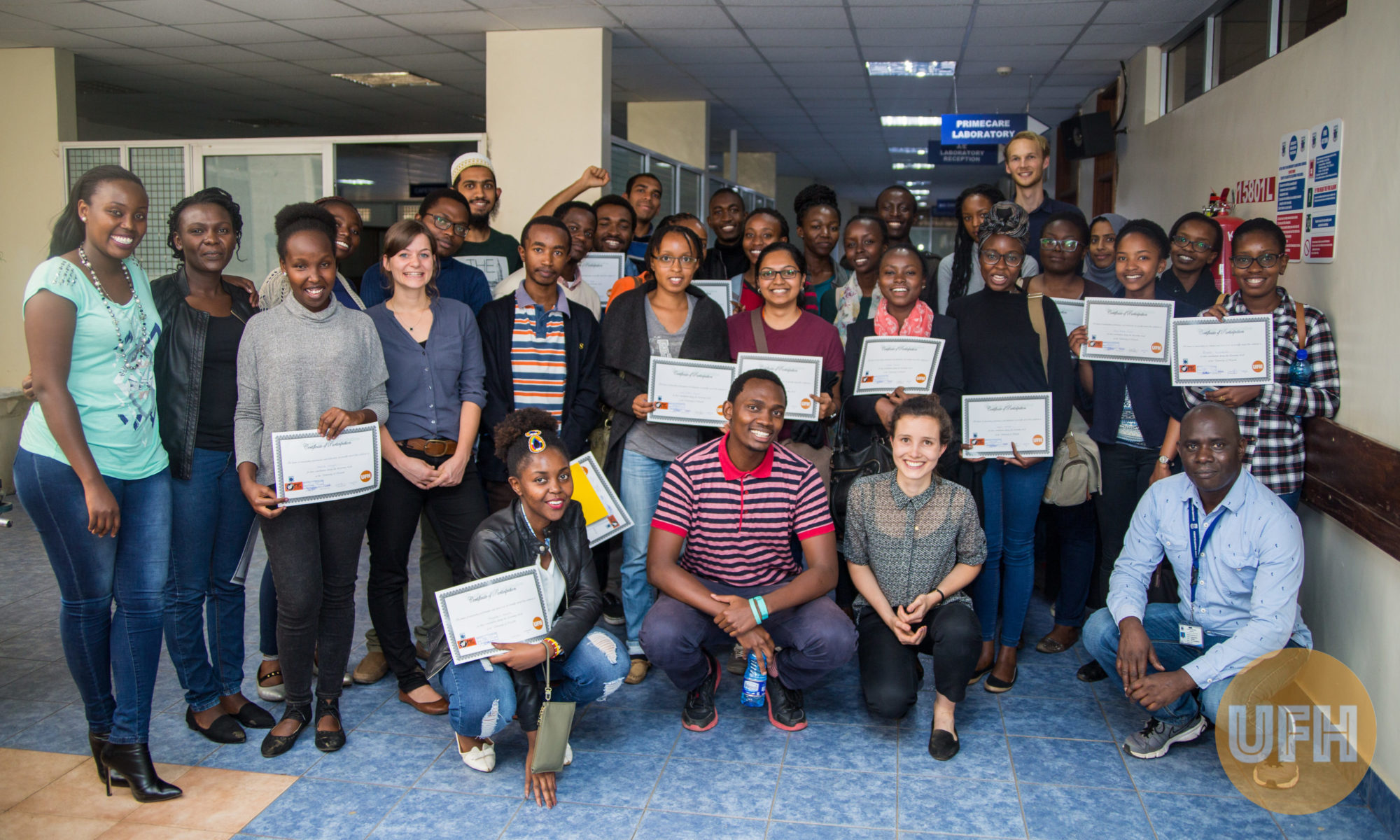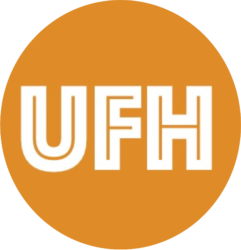A new continent, a new country and a whole new experience? How ready could we ever be? (maybe by learning some German?) Day 1 in a new country, everybody speaks German, all the items at the supermarket are written in German and we need to buy some groceries and don’t understand anything. A lovely lady working there eventually came up to us for help, and continued to help us out for as long as we were in Germany. She was the first of many kind people we encountered across our trip who helped us out whether in the grocery stores, train stations, the hospital or restaurants. We experienced love, hospitality and comfort like never before.
The first weekend we had in Berlin involved getting our own bikes and cycling to Schlachtensee which happened to be 10 minutes from our student village. A lake to swim in and get away from the Berlin heat? Count us in!
And while the next few paragraphs will sound like my whole time in Berlin was spent doing health related stuff, I have to say, I had the best time playing tourist as well. Whether it was the Reichstag Dom views, or the Berliner Dom, the Brandenburg Tor or the staircase of Victory Column, the historic holocaust memorial and the Berlin wall, we saw it all. The rich German history has been so beautifully presented in the various tourist areas in Berlin and it is worthwhile applauding Germany for accepting and appreciating its history the way it does. The food we had each day was combinations of flavors and always left us wanting to try more. The contrast between east and west Berlin was so evident by the different aesthetics of restaurants and food markets on each side, both refreshing in their own way. I’m pretty sure we ate in every zone of Berlin (thank you 9 euro ticket) and tried all the coffee, which was so good considering I come from a country that exports coffee daily.But now onto the elective..
We started our elective after 3 days of being in Berlin, getting to the hospital that day was in itself a mission as we were still wrapping our heads around the transport system (eventually we mastered the system).
We entered a whole new world, everyone was wearing white (in Kenya, only Laboratory coats are generally white) and the most impressive architecture (special mention to the laundry at the hospital).
Having worked at the medicine wards specifically the Tuberculosis (TB) department was a learning curve. In Kenya, TB is quite possibly the biggest burden on our healthcare system and we are still in the process of making strides towards ending this epidemic. While Germany has relatively fewer patients than Kenya, the dedicated healthcare towards TB was positively astonishing, and why not? Germany is the torch bearer in discovering tuberculosis. While most patients are now refugees, the access to treatment is designed in the most functional way with the Berlin central committee for TB closely monitoring the epidemiology each day. The TB ward at the hospital was small but extremely structured and organized. I was able to participate in daily ward rounds and blood works to monitor the side effects of the TB medications. Once a week, I joined the weekly major round where all the CT scans and radiographs were reviewed with the senior doctors and discussed the genotypes and phenotypes of the mycobacteria along with the drug resistant regimens. During these rounds,I realized the importance of knowing the phenotypes and what antibiotics were sensitive before we blindly continue to prescribe a regimen of medications that may not necessarily work. The importance of rigid testing also came to my attention when different members in the same family were infected with completely different strains.
However, I did not just participate in these discussions, I was able to see the laboratory at the hospital where state of the art procedures and equipment were in place. This was truly a once in a lifetime opportunity as my microbiology classes came to life right from the microscopic visualization to culture and PCR. I was able to see how the samples of our patients in the wards were being processed and the mycobacterium we spoke about each day in the wards, was a spectacular vision under the microscope. Not only did I view mycobacterium tuberculosis, but also several other strains under the scope. While in Kenya we order these tests regularly for our patients, this was my first experience seeing it all practically and I doubt i will ever forget what laboratory tests i am to order for suspected TB patients.
Twice a week, I got to join the brilliant doctors at the Outpatient clinic and heard stories of patients from various backgrounds, whether they were refugees seeking asylum or immigrants working in Germany for years. The language barrier was intense, but it never posed a hindrance to giving the patients the best care possible. This was one of the times I learnt the importance of speaking to your patients about their social lives and seeing the sociological models of health being put to play in real life. During these clinics, I had the rare opportunity to see a patient presenting with Mycobacterium marinum. This patient presented with ‘textbook symptoms’ as the clinical history was just what we read in textbooks.
Alongside the wards, I was able to really improve my Radiology skills and clinical examination skills. I learnt how to combine my clinical examination findings with those on CT scans and Radiographs. I had a chance to watch CT guided biopsies and spirometry in action. During my rounds, I was also able to participate in discussions around palliative care for lung carcinoma patients.
My experience at the TB wards was closely tied in with a week at the Public health center: Bezirksamt Lichtenberg von Berlin. Being in the wards, I had severally heard the doctors calling the office at Lichtenberg and patients being referred from the center but I was now about to see a whole different aspect of patient care. I was also exposed to the asylum seeking process a little bit as well as the public housing structures/facilities in place. The paper work here was so detailed and once a file was opened in their record, the follow up continued till long after treatment was completed. Such strict and elaborate follow up systems is what I hope to see in Kenya as we continue to develop health systems. The different ethical dilemmas doctors face daily were brought into light when patients came in without health insurance, or were alcoholics with Tuberculosis refusing to take their medications or a Schizophrenic. How do you treat such patients who are a threat to others around them but also to themselves as their disease continues to progress? There are many ways to approach these situations but the bottom line is that the patient always has the right to treatment and there has to be a way always.
While the focus was entirely on tuberculosis, I also rotated in the intensive care unit specifically the weaning station. Learning about the different intubation equipment was an obvious part of this experience, but did I know you can prevent the chance of infections by brushing the teeth of the comatose patients each day? I did not; and this is a big lesson I am taking into my final year rotations as I work in the intensive care unit. Since life support treatment in Kenya is a high cost implication as most patients pay out of pocket, several times families make the hard decision of ending treatment. The weaning station brought in a new aspect of German medical care for me. I learnt that life saving treatment was given to patients irregardless of their status and was continued for months in the hope that recovery is possible. This was indeed really positive to see and I happened to learn how this is really as a result of the history Germany has experienced. While this is good practice, I am yet to fully seek the understanding and answer to whether we are factoring in the quality of life of the patien t. Pediatrics is my first love in medicine, and I was fortunate to spend a few days there discussing patient care, watching procedures like joint aspirations and speaking to the most focused medical students who were not only working clinical rounds, but working on extremely labor intensive research papers.
This elective taught me that the patient will and should always come first and you will need to learn and exercise patience to the highest level no matter how frustrated you get. Always take time to explain to your patient what procedures/treatment you are doing and never assume they already know.
As a medical student, there is a whole world out there for me and I am just contributing a really small drop to the massive ocean of science and I can still do so much more. Medicine is not just about surgeries and the wards, prescribing medications and treating disease, it is also about how your patient feels about the diagnosis, where the patient lives and what they eat, because ultimately it’s not just black and white while treating a patient, it’s not disease and patient. There are lots of social factors that affect your treatment plans and therefore we should work towards practicing medicine more holistically. This elective taught me that the possibilities in this field are endless and there is something for everyone, you can always find your niche in this world and go to sleep feeling extremely fulfilled each day. You just have to keep working and walking forward and try out different things until you stumble upon your passion. And that is a journey I am really excited about.
So back to the question we started with. How ready could we be for this experience? We could never be ready enough but throwing ourselves out there and experiencing each day as it came was an introspective experience and putting ourselves in uncomfortable positions each day gave me the much needed self exploration and development. A time to be true to myself as a medical student and a future medical officer, to really decide what I want my life to look like, at least in this moment. While I say goodbye to Berlin for now, I am so grateful for all the people I met along the journey and stories about people’s life paths which have inspired me going forward. I hope this is just the end of one chapter with Berlin and another one will be around the corner soon.
A special mention to Dr. Lukas Herrman, Dr. Nicolas Schonefeld, Iannis, Dr. David Krieger and Dr Miriam Kuse and all the other helpful people we met along the rotations who have really made a difference in my outlook going forward.

